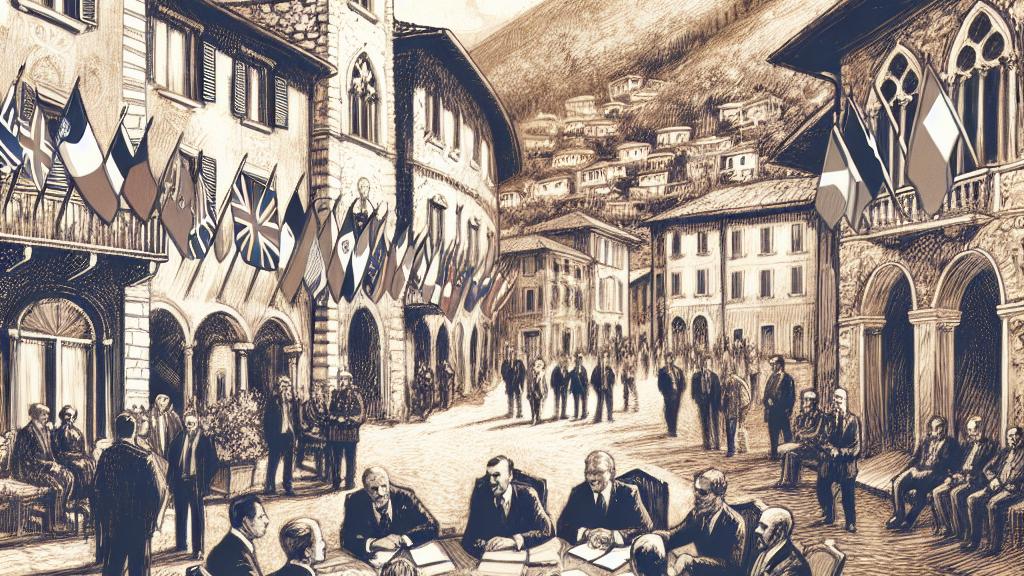G7 Diplomacy and the ICC's Arrest Warrant for Netanyahu
Overview
- G7 foreign ministers convene in Italy to address the ICC's arrest warrant for Netanyahu, marking a critical intersection of law and diplomacy.
- Leaders push for unity on international law amidst varied geopolitical stances, highlighting the complexity of the situation.
- Ceasefire negotiations for Gaza and Lebanon take center stage, reflecting urgent humanitarian concerns alongside legal discussions.

The Impact of the G7 Meeting in Italy
In the charming town of Fiuggi, Italy, the G7 foreign ministers gathered for what became a landmark meeting, primarily focused on the International Criminal Court's (ICC) arrest warrant for Israeli Prime Minister Benjamin Netanyahu. This unprecedented warrant has sparked extensive debate and political maneuvering, illuminating the diverse approaches of member nations. For instance, while the U.S. vehemently opposed the ICC's ruling, calling it outrageous, Italian Foreign Minister Antonio Tajani pushed for a cohesive international response. This blend of opinions showcases the intricate web of alliances and tensions that shape diplomacy today. The stakes are high; the G7’s response could set a tone for future international relations, particularly regarding accountability for war crimes. Here, amidst discussions of legality, the genuine desire for peace and cooperation became palpable.
Netanyahu's Response and Broader Consequences
As the ICC issued the warrant, Netanyahu quickly condemned it, labeling the charges as absurd and politically charged. This reaction underscores Israel's complex relationship with international institutions, particularly since it does not recognize the court's jurisdiction. Importantly, the warrant’s implications go beyond mere legalities; it could limit Netanyahu's diplomatic movement, restricting him in territories that honor ICC mandates. During the G7 discussions, dialogues also involved various Arab leaders who reiterated the urgency of establishing a ceasefire amidst ongoing conflicts. Notably, Jordanian Foreign Minister Ayman Safadi’s call for immediate action resonated deeply, serving as a stark reminder that the stakes extend beyond politics to the lives of countless civilians caught in the crossfire. Thus, the reaction to the warrant was more than political; it was a narrative woven from the very real consequences faced by people in the Middle East.
The Crucial Role of Ceasefire Negotiations
At the heart of these discussions lies a pressing commitment to achieving ceasefires in both Gaza and Lebanon. Emphasizing this goal, G7 officials conveyed cautious optimism about the potential for a ceasefire agreement between Israel and Hezbollah. This sentiment was echoed by the newest voices in the room from Arab nations, all advocating for immediate peace to end the suffering of civilians. As Safadi articulated, halting violence is paramount to restoring stability and dignity for those affected by conflict. The urgency of these negotiations highlights that while international law plays an essential role in holding individuals accountable, humanitarian considerations should take precedence. In this multi-layered context, the G7's comprehensive approach—balancing legal accountability with immediate action for peace—demonstrates a compelling blueprint for navigating the complexities of today’s global conflicts.

Loading...